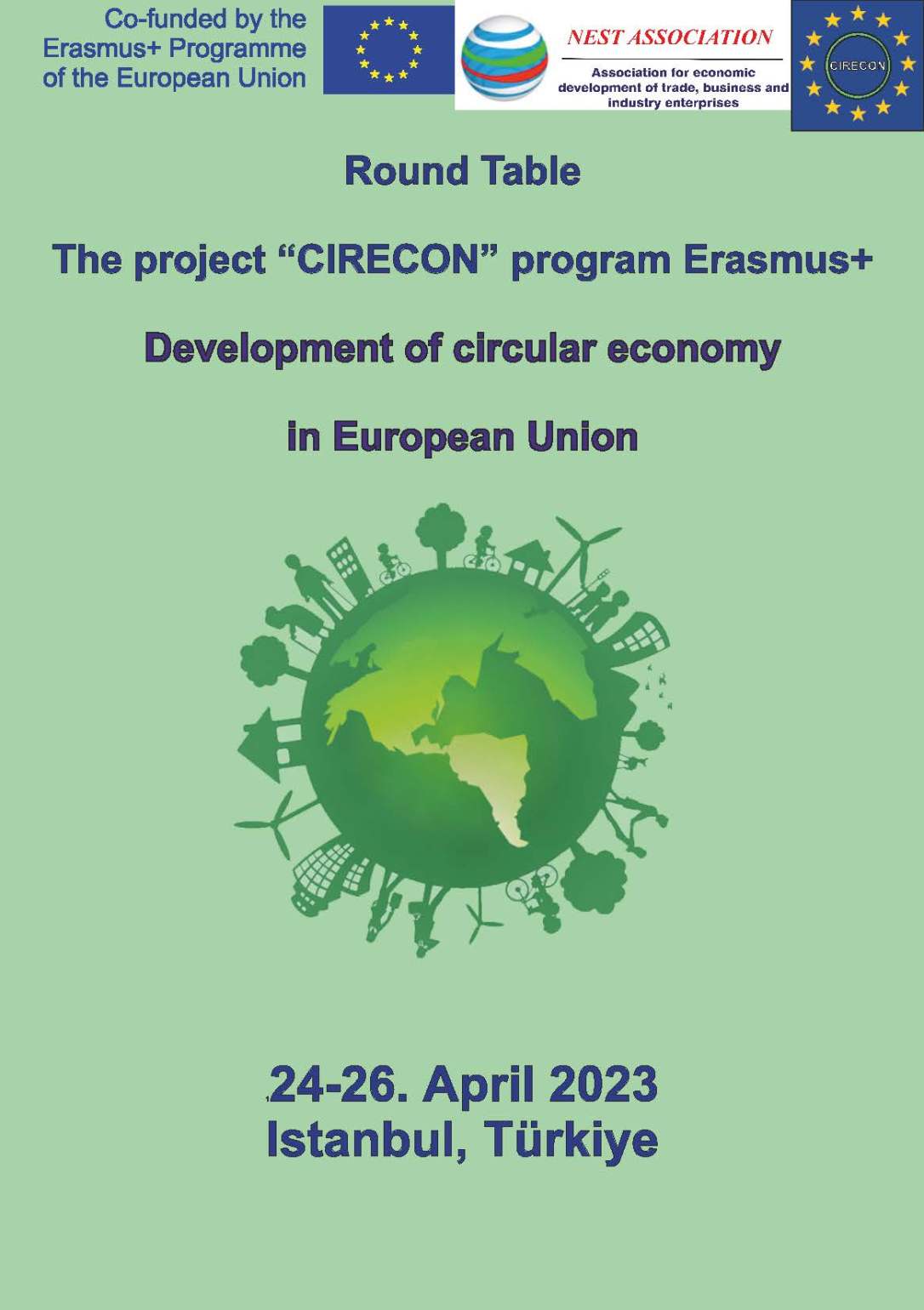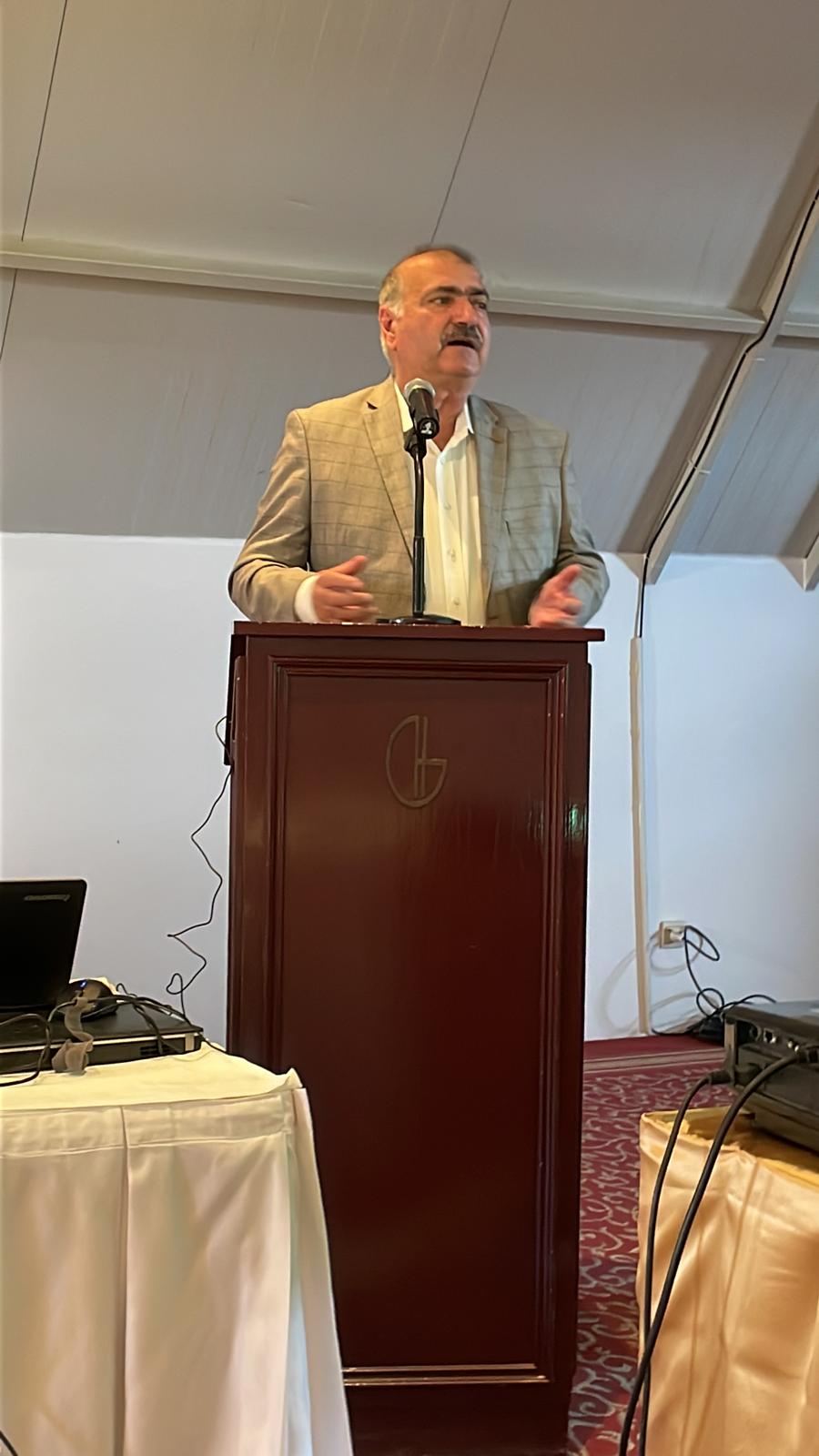Round table “Development of circular economy in European Union”

April 24-26, 2023 in Istanbul, (Turkey) the Round table “Development of circular economy in European Union” was held. The conference was attended by representatives of the EU states and partner countries – Bulgaria, Serbia, Slovenia, Romania and other countries.
On the first day of the Round table, NEST Association President Viktor Polyakov addressed the participants. He noted the importance of the scientific forum and circular economy issues for the entire European scientific community and partner countries and wished the guests of the Round table successful work.

Agenda of the Round table
Presentations
The circular economy in the construction sector – objectives, principles and specific measures
Socio-economic aspect of clean energy transition
Clean energy transition in the Western Balkan countries – Trap or chance for development?
Development of circular economy in Bulgaria
Circular economy as a model of development that forms a new identity of the Republic of Serbia
European energy policies in the context of the Green Deal
Many informative presentations were made at the Round table, for example, on the circular economy in the construction sector, on the socio-economic aspect of clean energy transition, on the clean energy transition in the Western Balkan countries, on the development of circular economy in Bulgaria, on the circular economy as a model of development that forms a new identity of the Republic of Serbia, on the european energy policies in the context of the Green Deal and many other areas of the circular economy. The speeches of young specialists from Serbia, Bulgaria and Slovenia did not go unnoticed by the scientific community. The Round table participants especially liked the reports of young scientists Kaloyan Polyakov, Dimiter Harizanov, Mihail Delev, Sofi Stoyanova from Bulgaria, Bojana Vasic from the University of Maribor (Maribor, Slovenia), Dubravka Živković from the University of Kragujevac (Kragujevac, Serbia) and Dmitar Filipović from Belgrade, Serbia.
As a result, the Round table achieved its goal, was able to unite all interested parties, provided space for the mutual enrichment of ideas and the development of a dialogue between scientists from different countries, created conditions for the exchange and discussion of achievements and developments in the field of the circular economy.
The Round table participants agreed on further cooperation in the field of research activities and European projects.


